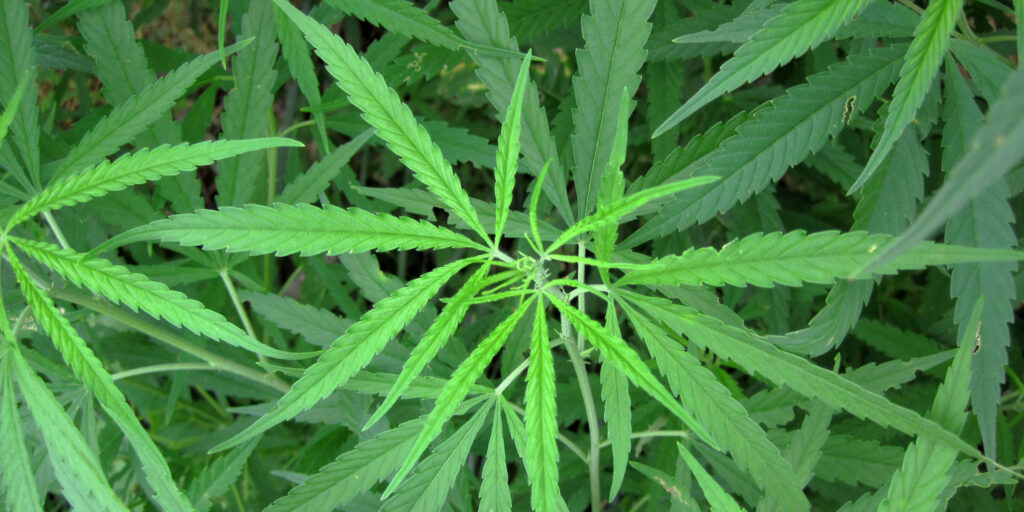Eight Pennsylvania GOP senators urge Toomey to support cannabis banking
(The Center Square) — Several Pennsylvania Senate Republicans are encouraging U.S. Sen. Pat Toomey to support legislation designed for helping cannabis businesses gain access to financial and insurance services.
While progress has been made on the state level, federal action is seen by the Republicans as key. A standalone bill, the SAFE Banking Act, had passed several times in the House, but failed to gain traction in the Senate.
Working the legislation into next year’s spending bill is the last chance before the congressional session ends and Toomey retires. Democrat John Fetterman, the state’s lieutenant governor, won election in November and takes the oath of office at noon on Jan. 3.
READ MORE — Thom Nickels: Clare Boothe Luce — a look back at a fascinating American life
In a letter sent on Dec. 7, state Republican Sens. John DiSanto, Dave Argall, Wayne Langerholc, Pat Stefano, Gene Yaw, Chris Gebhard, Mike Regan and Dan Laughlin urged Toomey to act.
“We write to [Sen. Toomey] today to request your support for the SAFE Banking Act (SAFE) legislation that will permit banks to provide services to state regulated marijuana businesses, employees, and ancillary businesses,” they wrote. “Under current federal law, state-licensed and compliant cannabis businesses are unable to access banking services and are forced to operate primarily in cash.”
They emphasize the economic potential and public safety gains of the bill.
“The stalled passage of SAFE has led to unacceptable real-world consequences including: employees of businesses unable to access banking services, state licensed cannabis retailers having to do business in all cash, and cannabis businesses being targeted for violent robbery. The latter example has turned deadly with dispensary robberies taking the innocent lives of dispensary workers.”
Pennsylvania’s version of SAFE banking legislation, as The Center Square previously reported, affects medical marijuana businesses. Recreational marijuana use remains illegal in the commonwealth. Passed in July as Act 56, it offered safe harbor from state prosecution to financial and insurance services that did business with legal marijuana companies.
Due to the threat of federal prosecution, risk-averse businesses avoid the cannabis industry, which then relies on cash.
“While Act 56 removes regulatory and compliance hurdles at the state level, Congressional passage of the SAFE Banking Act is absolutely necessary to remove the (inherent) tension between state and federal law and extend access to traditional financial products and services to state-legal cannabis businesses,” the letter stated.
We’ve seen crime related to cash issues with cannabis in Washington state, we’ve seen people losing their mortgages in other markets because they work in cannabis.
Almost 1.1 million Pennsylvanians have used medical marijuana since it was legalized in 2016. The letter cites 30,000 jobs in the state connected to medical cannabis and estimates more than $6 billion in sales.
Legalization advocates say the number is even higher.
“This is an issue that doesn’t just impact cannabis businesses,” said Meredith Buettner, executive director of the Pennsylvania Cannabis Coalition. “It really impacts our medical marijuana patients here in Pennsylvania, it really impacts all of the ancillary businesses that provide services and goods to the cannabis community.”
Buettner estimated the legislation could affect “well over a million, if not closer to 2 million Pennsylvanians.”
Stigma remains an issue, she said, to passing fixes that would treat cannabis businesses as any other legal business.
Making the necessary changes, though, is a public safety issue as much as it is a financial one. The harder it is for cannabis businesses to get a bank account or insurance services, the more of a target they are for criminals.
“There are state legal programs all over the country that are having serious issues,” Buettner said. “We’ve seen crime related to cash issues with cannabis in Washington state, we’ve seen people losing their mortgages in other markets because they work in cannabis … this, nationally, is a dire issue that really needs to be passed now.”
Anthony Hennen is a reporter for The Center Square. Previously, he worked for Philadelphia Weekly and the James G. Martin Center for Academic Renewal. He is managing editor of Expatalachians, a journalism project focused on the Appalachian region.
This article was republished with permission from The Center Square.





Not to mention that as a Federal Schedule 1 substance, a person with a medical marijuana card is considered by the ATF to be addicted and not eligible for firearms purchase. The ATF considers the card to be prima face evidence that the holder is addicted. 1984, Alice in Wonderland and Kafka, all rolled into one. Problems abound with recreational use of marijuana; it isn’t as benign as advocates would have you believe, but, if you are going to have it for medical use, at least exempt medical use from Schedule 1.